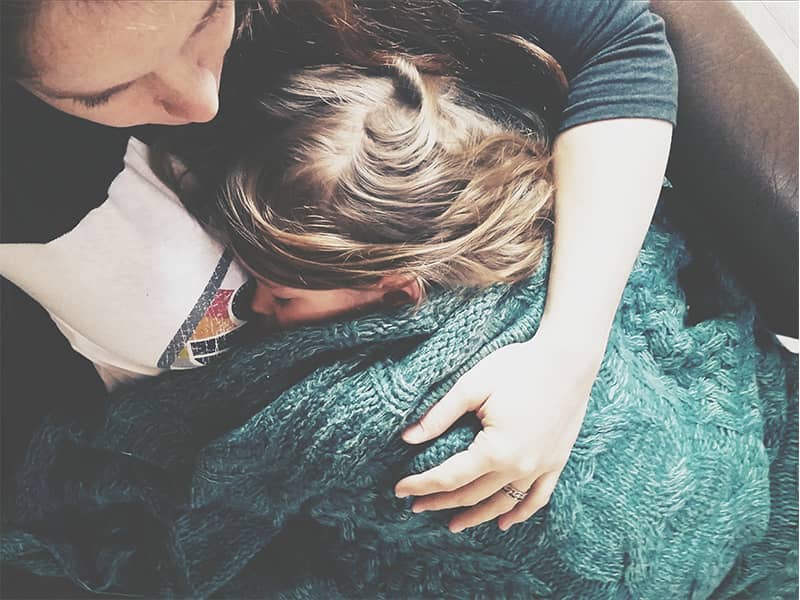And yet, I want to be honest with him. I have discovered that 6-year-olds are good detectives who can put clues together quickly. Some of the details connected to Santa Claus make no sense to Ben. He wonders, for example, how a huge team of reindeer can stand on an icy sloped roof without falling off.
Recently, when Christmas was over and Easter began to loom, Ben had determined that the Easter Bunny was not a “real” bunny, but actually “a person who dressed in a bunny suit.” I asked him if he knew who that person was. He said he didn’t know. "Do you know?" he asked, looking straight at me. He sounded as if he had pieced together half of the Easter Bunny puzzle, but in that split-second, I didn't want to provide him with the other half.
So I mumbled that I didn't know for sure, that I had never seen the Easter Bunny, which, of course, is true. But I felt like I was withholding important information from him, which is almost as bad as lying. After all, we have answered questions about other topics of curiosity to Ben--including some preliminary “where babies come from” questions we felt he was old enough to know.
By not coming clean about the Easter Bunny, I felt afterward as if I had failed Ben--despite what I thought were valid reasons for not telling him.I wish there could be some kind of agreement among parents that every kid should be told about Santa and the Easter Bunny, say, on their seventh birthday. I know from my own experience that it does not work that way. Some kids figure it out themselves, while other kids have the information thrust upon them. Among Christians, these traditions represent childhood innocence. Once the secret is let out, life is never quite the same.
I was 7 and in the second grade when I found out. I can still remember sitting in the school cafeteria with my classmates. The subject of Santa Claus came up. "You don’t still believe in Santa Claus, do you?" my best friend, Dean, said in that sing-song, teasing voice. (Dean had a big brother.)
I remember my answer came out in a stutter. I knew from the way he asked the question that my answer should be no, so that's what I said. Then Dean asked if I believed in the Easter Bunny. I told him I didn't believe in the Easter Bunny either, and from my friends’ reactions, I knew I had given the correct answers. I was crushed. I felt as if my life had changed in the span of less than five minutes.
My wife didn't find out about Santa and the Easter Bunny until the advanced age of 9. As she remembers it, her parents had to sit her down and tell her because her 6-year-old sister had begun to figure out everything. My wife laughs when she tells the story now, but she says she was devastated at the time.
Maybe both of us are dwelling too much on our own childhood reactions. After all, Ben didn't seem to be particularly surprised or stunned to figure out that the Easter Bunny was not an actual bunny. He already knows that the Santa Claus in the mall cannot possibly be the same Santa who delivers presents.Most important to us, Ben can grasp the spirituality of Easter. He knows it’s not just about the candy. He picked out his new clothes for church several weeks ago. And although he can’t fully comprehend Christ’s resurrection, he understands the significance of the cross. His eyes widened in awe when I told him that Jesus died for us.
"You mean, he wanted to die?" he asked.
"He was willing to die," I explained. Ben seemed to take this in solemnly, his first glimmering of the concept of sacrifice.
Although my sons won’t believe in Santa or the Easter Bunny forever, both myths carry symbolism that reflects our family’s heritage. The first edible Easter bunnies, for example, appeared in Germany more than 200 years ago. When Germans settled in Pennsylvania, they brought with them the traditional legend that if a child behaved, the Easter Bunny would leave a nest of colored eggs, representing rays of the returning sun.
Many of our ancestors were among these Germans, who became known as the Pennsylvania Dutch. As in past years, our sons will receive Easter baskets filled with eggs, jelly beans, and chocolate rabbits from the Easter Bunny. Though Easter baskets don’t seem to be related directly to the resurrection, I think this is a tradition very much worth keeping.
At bedtime some night soon, perhaps my wife and I will sit down and tell Ben the whole truth--with the stern warning not to tell his brother or his buddies at school. We would be entrusting him with a secret. But now I am looking out the window, and I see my little boy in the driveway, riding his bike so tentatively, looking so young. And I think to myself: No, not quite yet.

